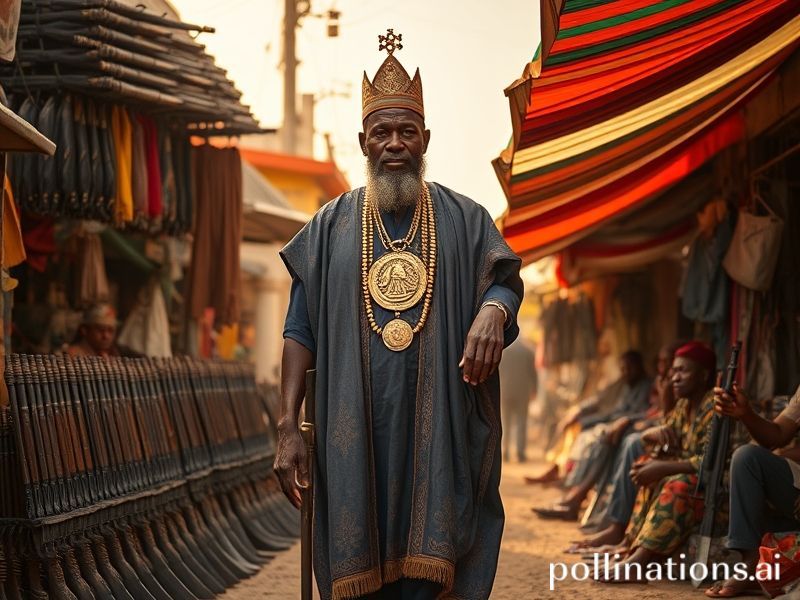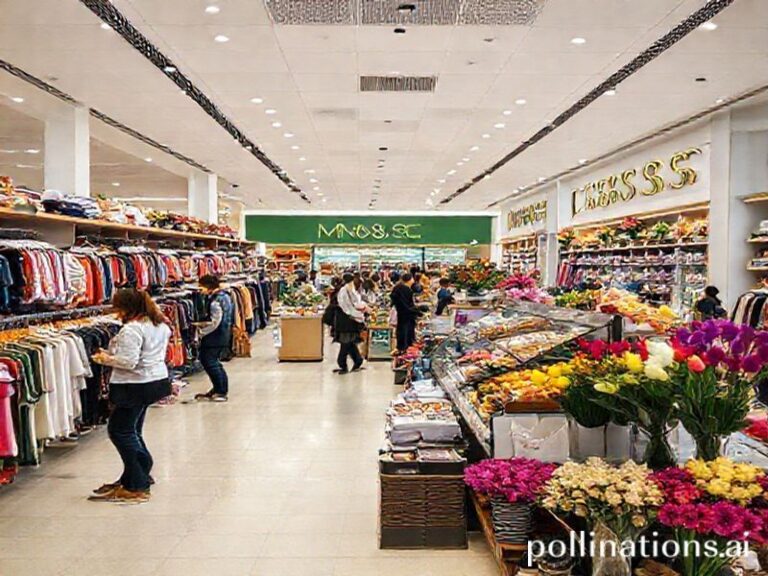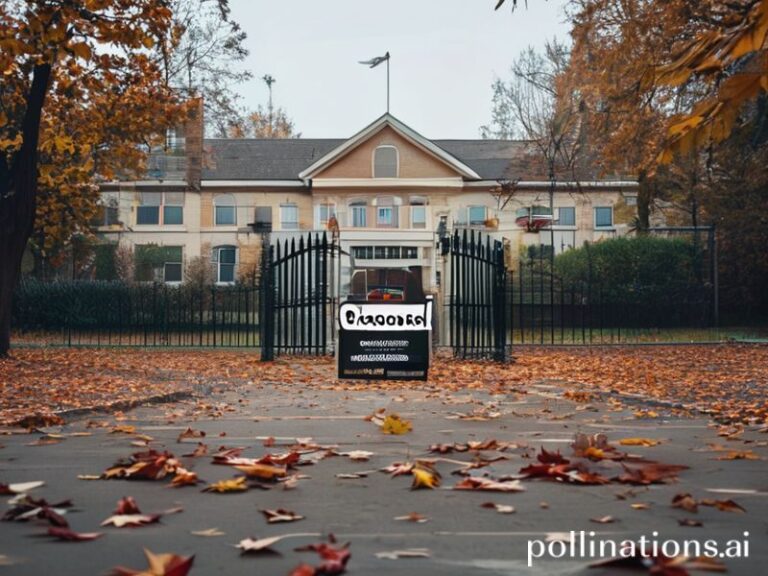Balogun Bazaar: How the World’s Biggest Informal Market Outsmarted Globalization (and Maybe Saved It)
Balogun: The Global Bazaar Where Everyone Haggles Over the Future
By Our Man with a Hangover in Three Time Zones
ISTANBUL—Try explaining “balogun” to a jet-lagged German trade attaché who thinks it’s a new crypto coin. You’ll watch his pupils dilate when he realises it’s actually the planet’s biggest informal market—an open-air, cash-only Disneyland stretching from Lagos to Lomé, where anything from knock-off F-35 parts to a slightly-used kidney can be yours if you negotiate with the right auntie. The term itself is Yoruba for “general” or “war commander,” which is ironic: the only thing being conquered here is common sense.
Balogun isn’t a place on Google Maps so much as a distributed condition, like herpes or democracy fatigue. It surfaces wherever governments leave a vacuum the size of a tax loophole. In Lagos Island’s famous textile warren, you’ll find Chinese polyester masquerading as Italian silk, hawked by men who speak Mandarin with a Shanghainese accent they learned on YouTube. Same men WhatsApp their cousins in Guangzhou, who in turn text suppliers in Karachi, who forward memes to a warehouse in Dubai run by a Serbian who used to sell rocket launchers. Globalisation, but make it flea-market.
The supply chains are so Byzantine they’d give Kafka acid reflux. A single pair of “Nike” trainers might start life in a sweatshop outside Ho Chi Minh City, catch a ride on a dhow flagged in Panama, switch to a decrepit lorry in Cotonou, and finally parade down Balogun’s muddy alleys priced at 7,000 naira or “best offer, broda.” Somewhere along the way, the shoes acquire a backstory involving a cancelled US military contract and a Nigerian pop star’s Instagram post. By the time they reach your feet, they’re less footwear than geopolitical fan fiction.
Western commentators love to cluck about “informal economies” draining state coffers. Meanwhile the IMF quietly estimates that 65% of sub-Saharan Africa’s GDP passes through channels like Balogun. Translation: if these markets ever unionised, they’d be the continent’s second-largest employer after despair. Multinationals have noticed. Unilever now ships “test sachets” of shampoo designed specifically for resale in open-air stalls. Even Amazon—patron saint of cardboard overkill—runs whisper campaigns teaching vendors how to wrap contraband in Prime-branded bubble wrap. Nothing says customer obsession like helping bootleggers look legit.
The environmental footprint is equally poetic. Every Monday, mountains of second-hand clothes arrive from Europe’s donation bins, labelled “Dead White Man’s Wardrobe” by local slang. They’re sorted by hand: Grade A for boutiques in Ikoyi, Grade C for village funerals, Grade “What-the-Hell-Is-This” becomes stuffing for couches sold back to Europeans as “authentic African handicrafts.” It’s the circular economy, except the circle is a Möbius strip and we’re all stuck on the sticky side.
Security agencies periodically raid Balogun for optics, seizing knock-off iPhones and enough tramadol to sedate Belgium. Within 48 hours, stalls reopen like mushrooms after rain, proving that prohibition is just another import tariff. The UN Office on Drugs and Crime recently admitted—off the record, over lukewarm espresso in Vienna—that Balogun-style networks now move 19% of the world’s counterfeit pharmaceuticals. On the bright side, at least someone’s distributing vaccines faster than COVAX.
Politicians, naturally, want a cut. Nigeria’s 2024 budget proposal includes a line item for “formalising informal trade,” which is bureaucrat-speak for “finding new pockets to pick.” Expect a blockchain-based hawker licence nobody asked for, designed by a cousin of the minister. The last time Lagos tried to digitise Balogun, the servers crashed under the weight of 2.3 million bribe receipts. The market simply rebooted on Telegram, complete with GIF stickers of winking customs officers.
So what does Balogun tell us about the world? That borders are just speed bumps for ambition. That regulation is a luxury brand few can afford. And that when official systems fail, humans revert to the oldest algorithm: hustle or starve. One day, archaeologists will dig up a landfill outside Accra and find a single plastic sandal fused to a microchip, the Rosetta Stone of late capitalism. Until then, the bazaar rages on—general, commander, and casualty of our global mess.







